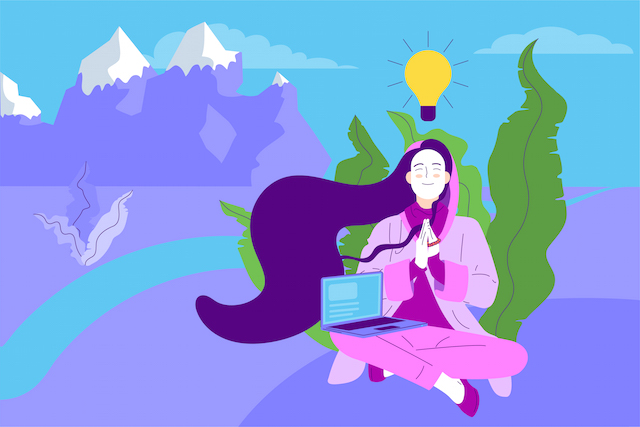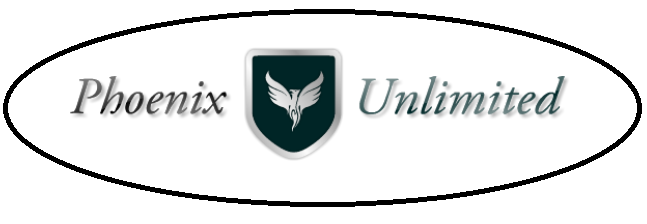
“You should sit in meditation for twenty minutes a day, unless you are too busy, then you should sit for an hour.” ~Ancient Zen proverb
I used to think that life was about powering through things. I’d grab a latte, write my to-do list, and proudly cram as many things as possible into my day.
At work, there was staff, payroll, invoices, customers, marketing, and the occasional cleaning of an office bathroom. At home, there was parenting, dinner, cleaning, homework, bedtime, laundry, and plans for the next day. When my eyes could no longer remain open, I’d fall into a restless night’s sleep accompanied by a busy mind and grinding teeth.
I figured I had no choice. I had two kids, a husband, a landscape business, a school that wanted parent participation, a co-housing community with obligations, and an overachiever complex.
There was plenty on my plate just being a mother of two with a family business. But what made matters worse was me going above and beyond. I was president of the school foundation, head chef for community meals, point person for committees, and in my free time, (when was that exactly?) an aspiring athlete training for triathlons. I wanted to be the woman who could do it all, and do it well.
Being busy made me feel important. The more I juggled, the more praise and attention I got from others, fueling my sense of purpose. It fed my ego and gave me the adrenaline to keep going.
Without being busy I thought my life would look insignificant. I might disappear like a beige house in a sea of endless tract homes, bland and provincial. So I filled every second of every day with a sense of purpose and a mission that never left room for rest. When no one needed me, I scrambled for something or someone to engage with. I’d repaint a bedroom or rework our website to keep from being unproductive.
My busy-ness became an addiction. Another project complete, another shot of adrenaline. I felt good and sh*t was getting done!
But similar to a person with anorexia who starves herself to the point of hospitalization, I was so focused on getting results that I didn’t realize the toll it was taking on me.
I told my concerned parents I was fine, and that it all needed to happen. I rationalized that I had to do it all for the sake of my family. But underneath it, I was wearing out. My back hurt, my jaw ached, and according to my Ayurvedic practitioner, I’d worn down my adrenal glands, which would eventually lead to other health problems.
When my mother died, my father took up Vipassana meditation at a Buddhist retreat center in Northern California. For Christmas, he paid for me to attend a three-day silent meditation retreat. I was touched by his gift, but nervous.
The thought of sitting still for three days scared me. How would I exercise? What if I had to go to the bathroom during a meditation? What if I couldn’t do it?
The first two days were the hardest. I did everything in my power to summon my patience, but sometimes I let my mind wander on purpose, counted the minutes until the bell rang, and allowed myself to take walks instead of “walking meditations.” I did what any person new to meditation might do: I bent the instructions to fit what I thought were my needs.
But by the third day, something profound happened. I surrendered to the moment, and the stillness felt good. A calm washed over me like the warmth of a bath. What once felt tense relaxed, and I experienced a deep sense of peace. In the absence of doing, I felt like I was coming home.
That New Year’s Eve I made a resolution to meditate every day for one year. Though I knew it was one more thing to add to my to-do list, it felt important. There would be no schedule, no method, no particular length of time, and no particular place. It was just me, sitting in observation of my breath, every day. It needed to be on my terms and without judgment or pressure, or it wouldn’t work.
I noticed my life began to calm down that year. My back pain eased a bit and I craved more quiet. I was quick to notice my feelings and follow my intuition, and my urgency about things getting done was beginning to diminish. By the end of the year, I had only missed six days of meditating. What was once a good idea had become a part of my daily routine.
It’s been over six years since that retreat, and the results of my almost-daily meditation practice have been noticeable, but my proclivity toward being over-productive remains.
Like a recovering alcoholic, I have to talk myself out of falling back into its socially acceptable, compelling grip. My smartphone taunts me like a flask I carry in my purse, begging me to engage with more causes, more conversations, and more people. It never goes away; I just have to keep on top of it.
But unlike alcoholism, being addicted to busy-ness is not a disease; it can be a simple choice. I know that if I choose to indulge myself by packing my schedule, kicking back too much coffee, and going full throttle, I will feel depleted after the race. I know that if I choose to over commit myself, I’m actually looking for praise.
So, instead of getting down on myself, I now close my eyes and focus on my breath. Though I feel impatient and annoyed at first, eventually the familiar warm water soothes my active mind and I am reminded that there is no need to panic, no need to rush. I just need to be still and present, the place where my feelings of insecurity are replaced with feelings of deep connection and gratitude.
It is there that I can relax and just be.
![]()
![]()
![]()
![]()
About Heather Picard
Heather Picard is a Cash Flow Coach who helps women master their money. She is an award-winning speaker and facilitator. She is a graduate of Columbia University and the Entrepreneurial Leadership Academy. Heather helps women break through their limiting beliefs to unleash their earning potential, step into the fullness of their lives, and make the difference they’re here to make.
Get in the conversation! Click here to leave a comment on the site.
The post Being Busy Made Me Feel Important, But Now I Feel at Peace appeared first on Tiny Buddha.




You must be logged in to post a comment.